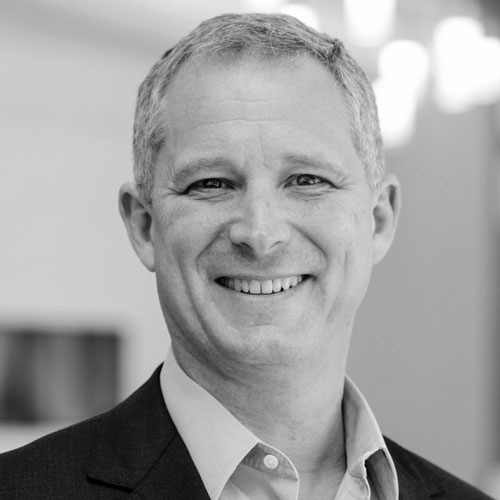Ivor Horn’s path to medicine was set long before she became chief medical officer at Accolade, which is a personalized health and benefits solution for employers, health plans, and their members. Her father experienced a traumatic brain injury when she was a child, and she remembers feeling disempowered from the lack of resources available to help her family ask questions when dealing with the healthcare system—let alone know the right questions to ask.
That is why she decided to become a pediatrician and research the dynamics of communication between patients and providers.
“Knowing what my family experienced during my father’s diagnosis and treatment, I wanted to find ways to improve how patients and providers interact,” Horn says.

Her research found that trusting relationships and patient self-efficacy—confidence that their goals will be met—are key factors. After joining Accolade’s advisory board, she realized that the company was already applying her theoretical findings to its work with clients.
In an age when healthcare is often treated as a commodity, Accolade acts as an advocate and advisor to help personalize the experience. This is accomplished by engaging with individual members to gather information that helps create a holistic context for better understanding their needs and developing a trusting relationship.
The process begins with dedicated health assistants, who are the first points of contact that can grow to include specialty nurses, behavioral health teams, pharmacists, medical directors, and integrated medical teams. These assistants can help with everything from explaining medical bills, health benefits, and making recommendations during open enrollment to explaining diagnoses, locating a specialist or primary care physician, and suggesting questions to ask clinicians during appointments.
“We work from an influence model that doesn’t just focus on clinical conditions, diagnoses, or procedures,” Horn explains. “Health situations are often stressful and confusing, so we listen and engage with our members ahead of time so they understand what’s going on and can make better decisions.”
“It’s like having a doctor in the family who can give you medical advice, but also knows what your health benefits cover,” she adds.
For example, traditional population health analytics frequently look at where patients live, their gender, or socioeconomic status to gain insights into their health and to determine appropriate recommendations. But they may miss that the distance someone lives from the nearest clinic has less to do with their access to medical attention than the fact that they have to take care of their grandchild during clinic hours. Or that seasonal employment determines whether they can afford to fill a needed prescription medication.
“By developing holistic views of our members, we’re able to truly personalize their care,” Horn says. “That’s why health systems are starting to engage more and more with their communities. They can’t just operate within the walls of the healthcare setting. They have to be where people work, play, and pray.”
She refers to quality healthcare as a “team sport,” and believes that better informed patients enable clinicians to deliver better care. If patients can provide “the right information” and ask appropriate questions, medical professionals can then make recommendations that are better suited to the individual’s condition, concerns, and lifestyle.
The Accolade team takes an active role throughout extended processes, such as hospitalizations and scheduled surgeries. They educate members about the procedure in advance; explain the admission and recovery processes; suggest questions to ask during hospitalization; interact with them, their family, and the care team during the admission; review discharge plans; follow up on progress after discharge; and report issues to the care team, if needed.
Accolade also engages with members before health events occur, which creates ongoing opportunities to guide members to the most appropriate healthcare resources. Outcomes and patient satisfaction with the experiences are greatly improved as a result of such extensive support and interactions between the provider, care team, and member.
As much effort as the company puts into building personal relationships, it also strives to strike the right balance between human interactions and technology. Its online platform enables members to find benefit information and to securely communicate with their health assistants.
The same capabilities have been designed into the Accolade mobile app. In addition to supporting tasks such as researching medical conditions, requesting a replacement insurance card, or getting information on a medical claim, Accolade Mobile connects members to a health assistant via text or phone call. Other team members can be added to a group chat in real time to provide additional expertise for more in-depth questions.
“Technology enables us do incredible things, but an algorithm and chat bot aren’t enough without personal interaction,” Horn says. “The latest innovations can provide analytics and data, but humans have to be part of the equation to create a meaningful context for understanding each individual’s unique situation.”
Accolade’s approach is in sync with the changing medical environment. The doctor-patient relationship has evolved from a one-way interaction in which clinicians simply expected patients to follow their recommendations into a partnership. With so much available information, Accolade helps ensure that both providers and patients have the knowledge and understanding they need to make decisions that lead to the best possible outcomes.
“The healthcare environment has changed tremendously since the experience I had with my father,” Horn says. “It’s exciting to help spur on and maintain that shift—and why I continue to be passionate about the work I do.”


